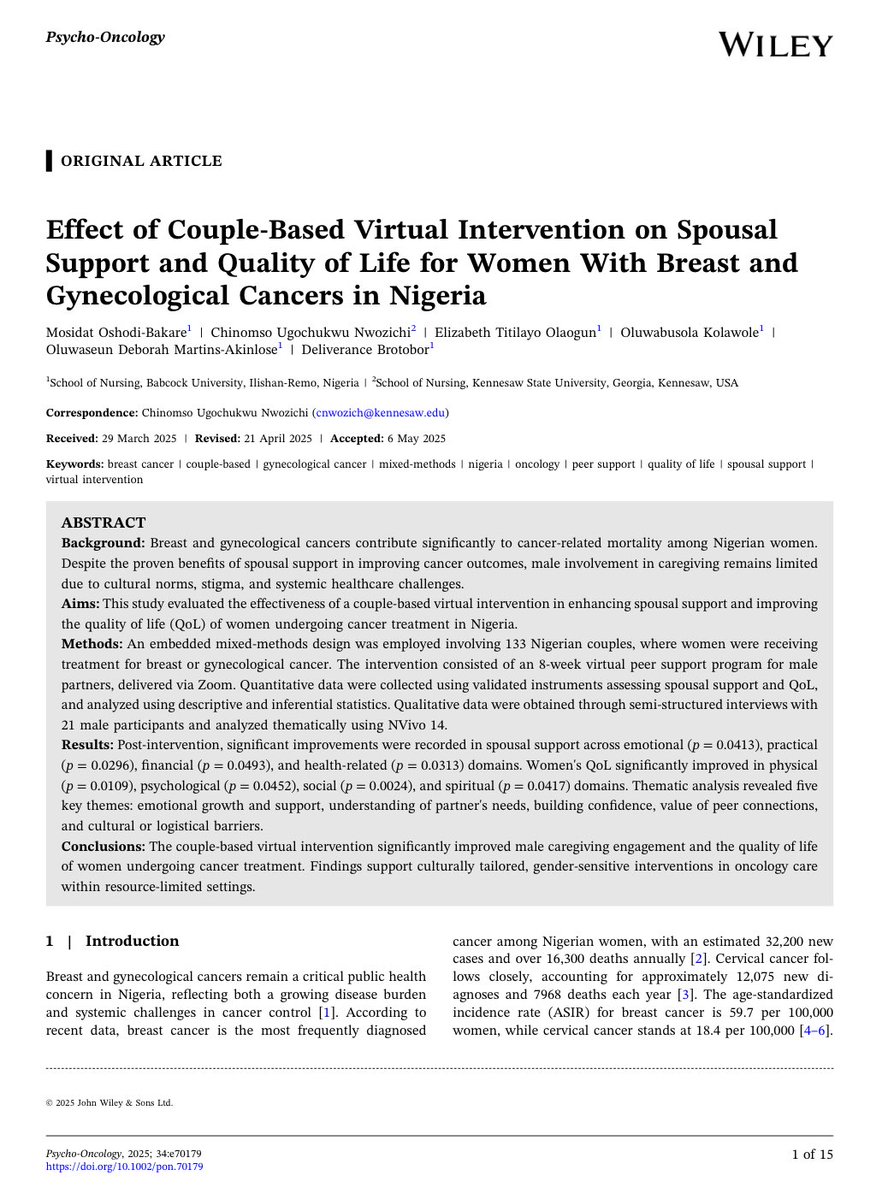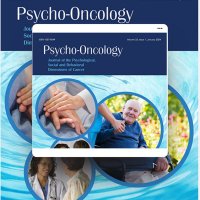
Psycho-Oncology
@psyonc
Psycho-Oncology is the official journal of the @APOSHQ & the @BPOSUK | Editor-in-Chief @BillyRosaPhD | SoMe Ed @crisbergerot
ID: 1742666910280388608
https://onlinelibrary.wiley.com/journal/10991611 03-01-2024 21:59:28
272 Tweet
156 Takipçi
38 Takip Edilen

Can genetic risk scores help people who smoke make healthier choices? This study found high interest in polygenic risk scores (PRS) to guide smoking cessation & lung cancer prevention, highlighting the need for clear comm & shared decision-making Psycho-Oncology onlinelibrary.wiley.com/doi/10.1002/po…
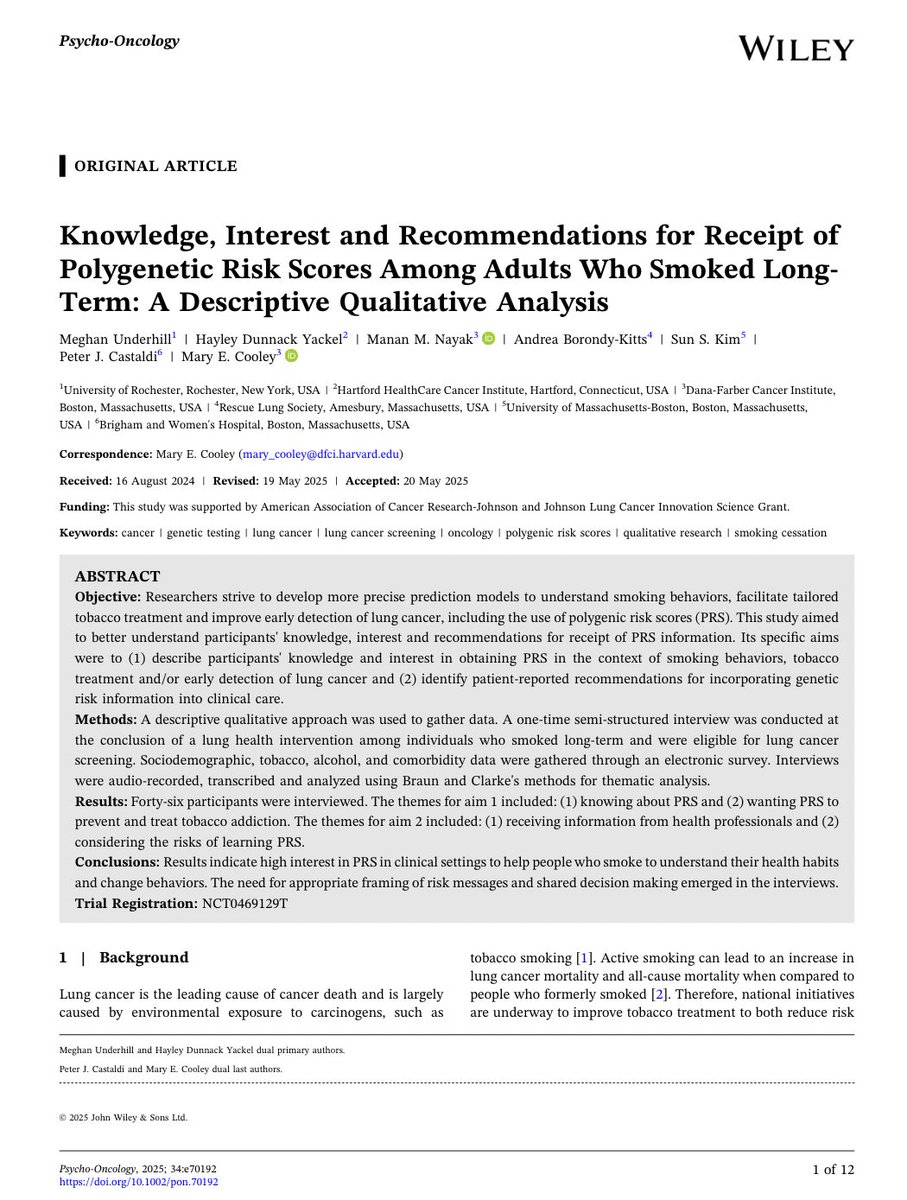

Medical mistrust is real—and patients are talking about it online In 100k+ Reddit posts, 1 in 5 expressed mistrust—mostly toward healthcare professionals. Key drivers? Feeling dismissed, poor communication, and perceived incompetence Psycho-Oncology onlinelibrary.wiley.com/doi/10.1002/po…
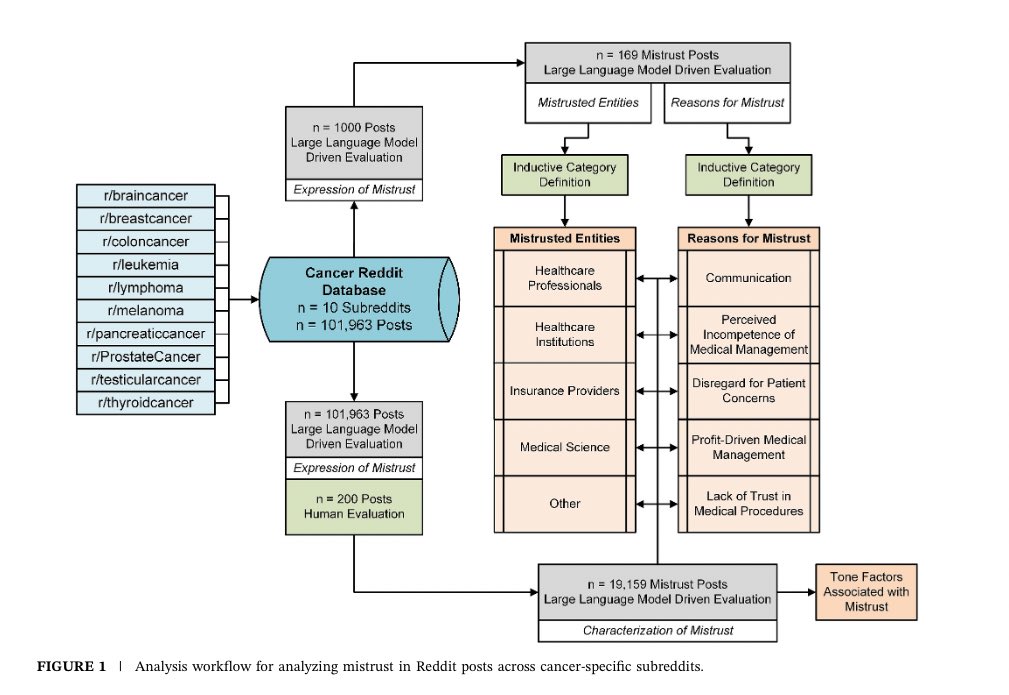

Supportive care needs after colorectal cancer go far beyond treatment Psycho-Oncology Billy Rosa, PhD, MBE, APRN In Malaysia, patients reported high needs in healthcare access, clear info, and emotional support—especially younger adults and those in public hospitals onlinelibrary.wiley.com/doi/10.1002/po…
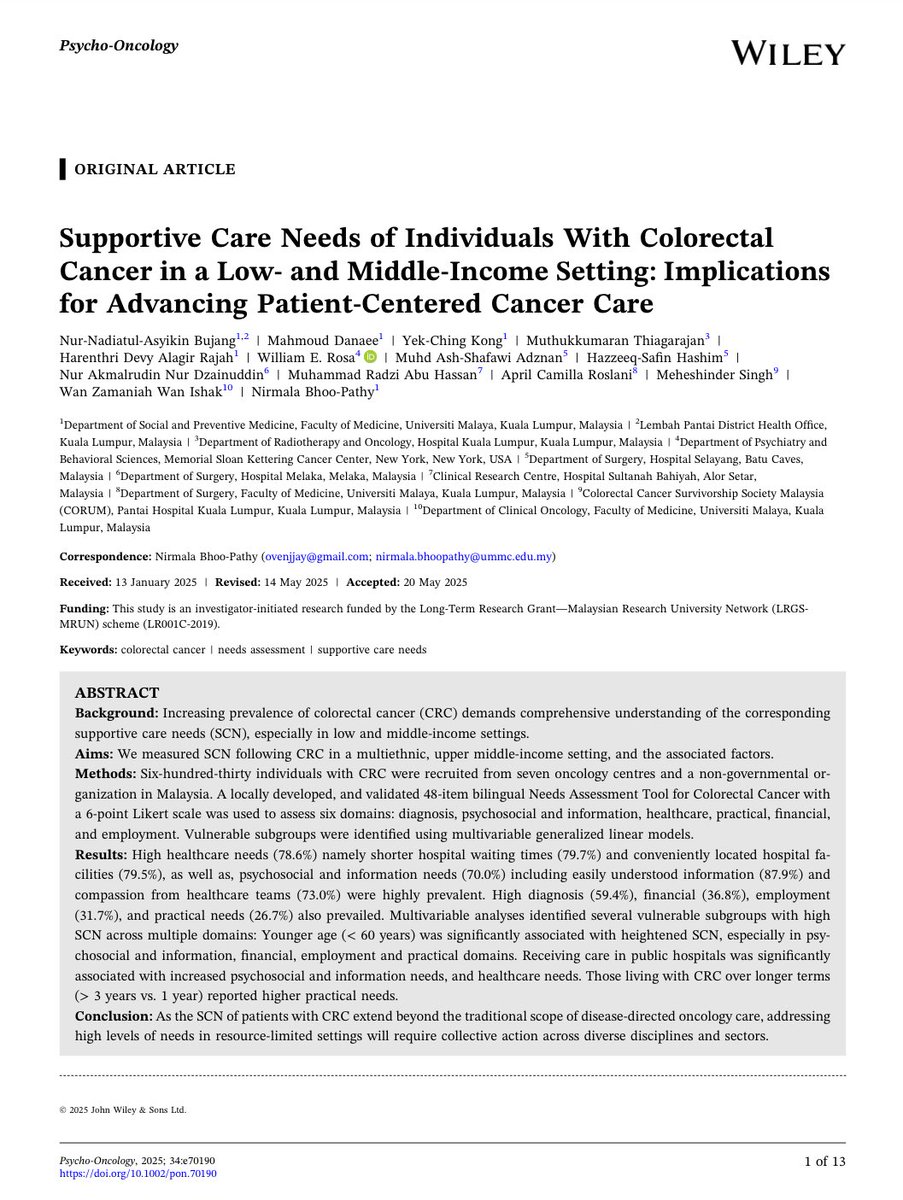

“It’s not just the meds—it’s how we cope.” Psycho-Oncology This systematic review of qualitative studies reveals how women on endocrine therapy for breast cancer experience and manage symptoms—and highlights major gaps in support, info, and care onlinelibrary.wiley.com/doi/10.1002/po…
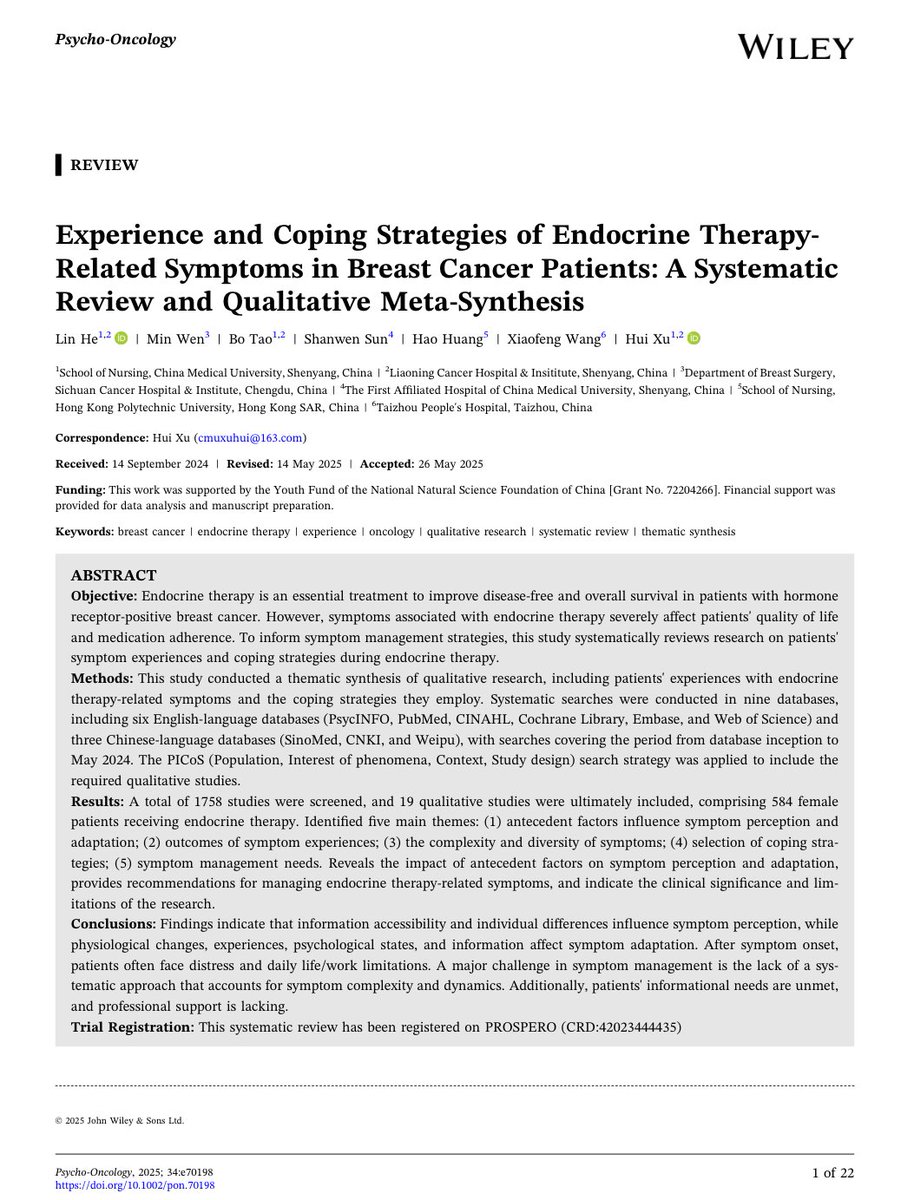

“I want to move, but I need support.” Women with metastatic breast cancer see the value of physical activity—but face physical, emotional, and systemic barriers. Tailored, accessible support is urgently needed Psycho-Oncology
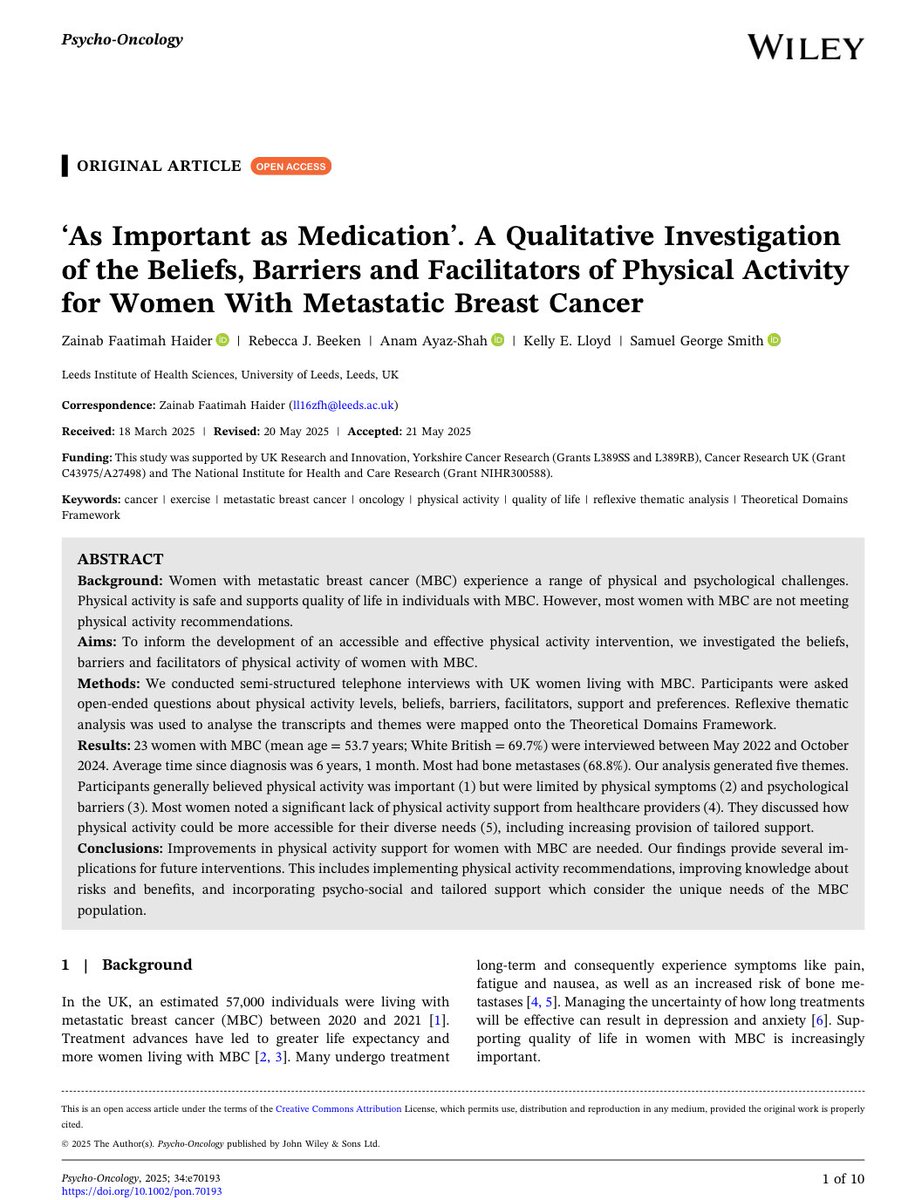

Is more time always better for shared decision-making? Psycho-Oncology This study finds that time matters—but how it’s used matters more. Patients vary in how much time they need, and many aren’t even aware they have a choice onlinelibrary.wiley.com/doi/10.1002/po…
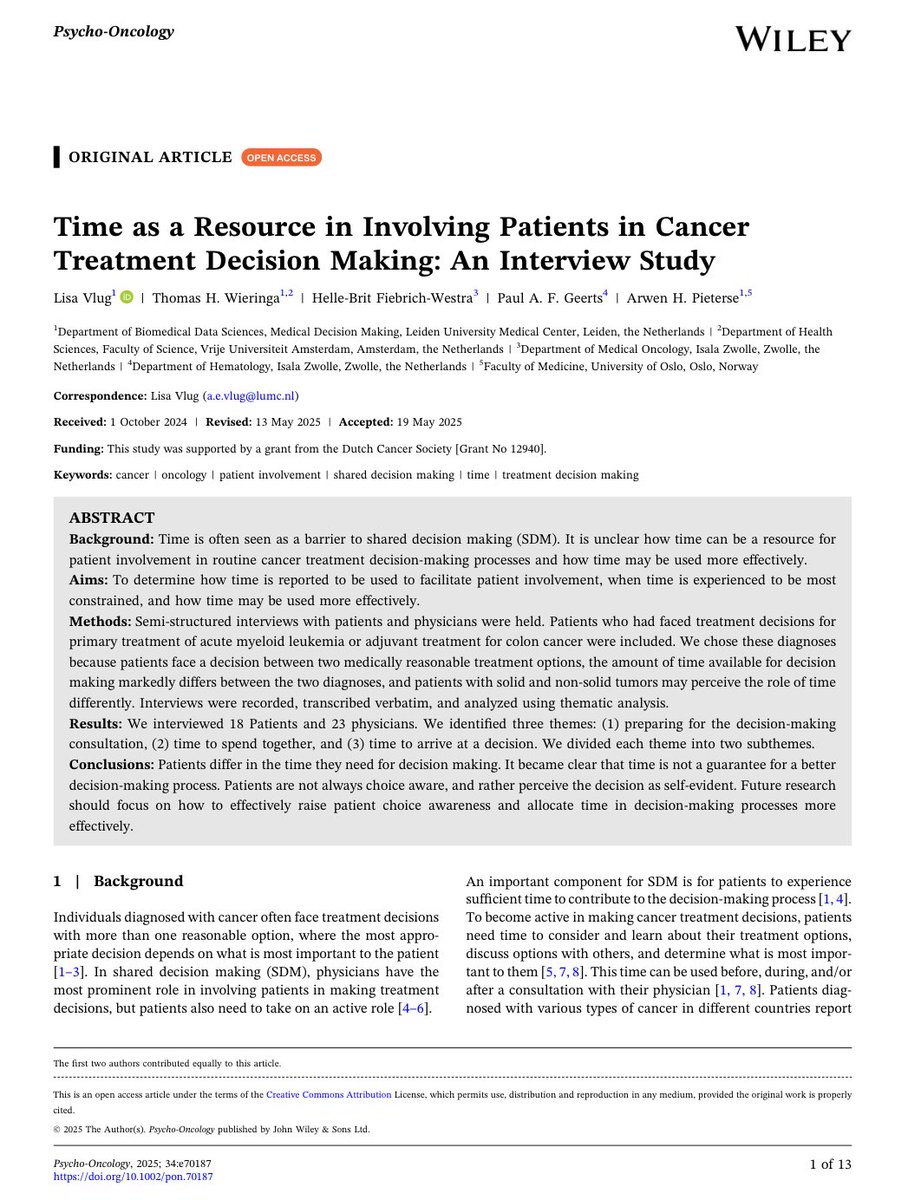

“Clinical-only” cancer diagnoses leave many residents with dementia unseen. In UK nursing homes, people with dementia & cancer often miss out on key decisions & symptom management. Time to support staff & rethink how we care Psycho-Oncology onlinelibrary.wiley.com/doi/10.1002/po…
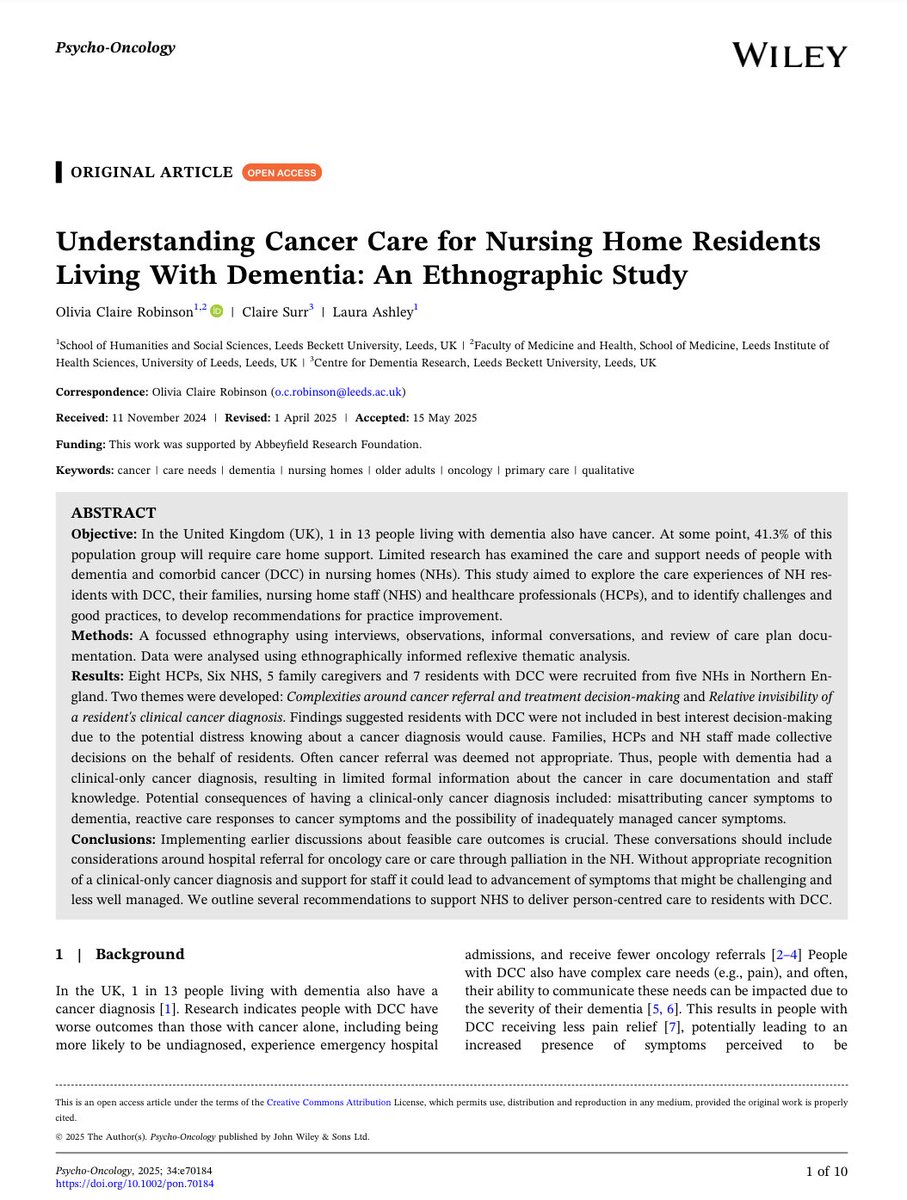

People with intellectual & developmental disabilities report more severe cancer symptoms—especially anxiety & depression Psycho-Oncology This findings underscore the urgent need for tailored support & equity in cancer care onlinelibrary.wiley.com/doi/10.1002/po…
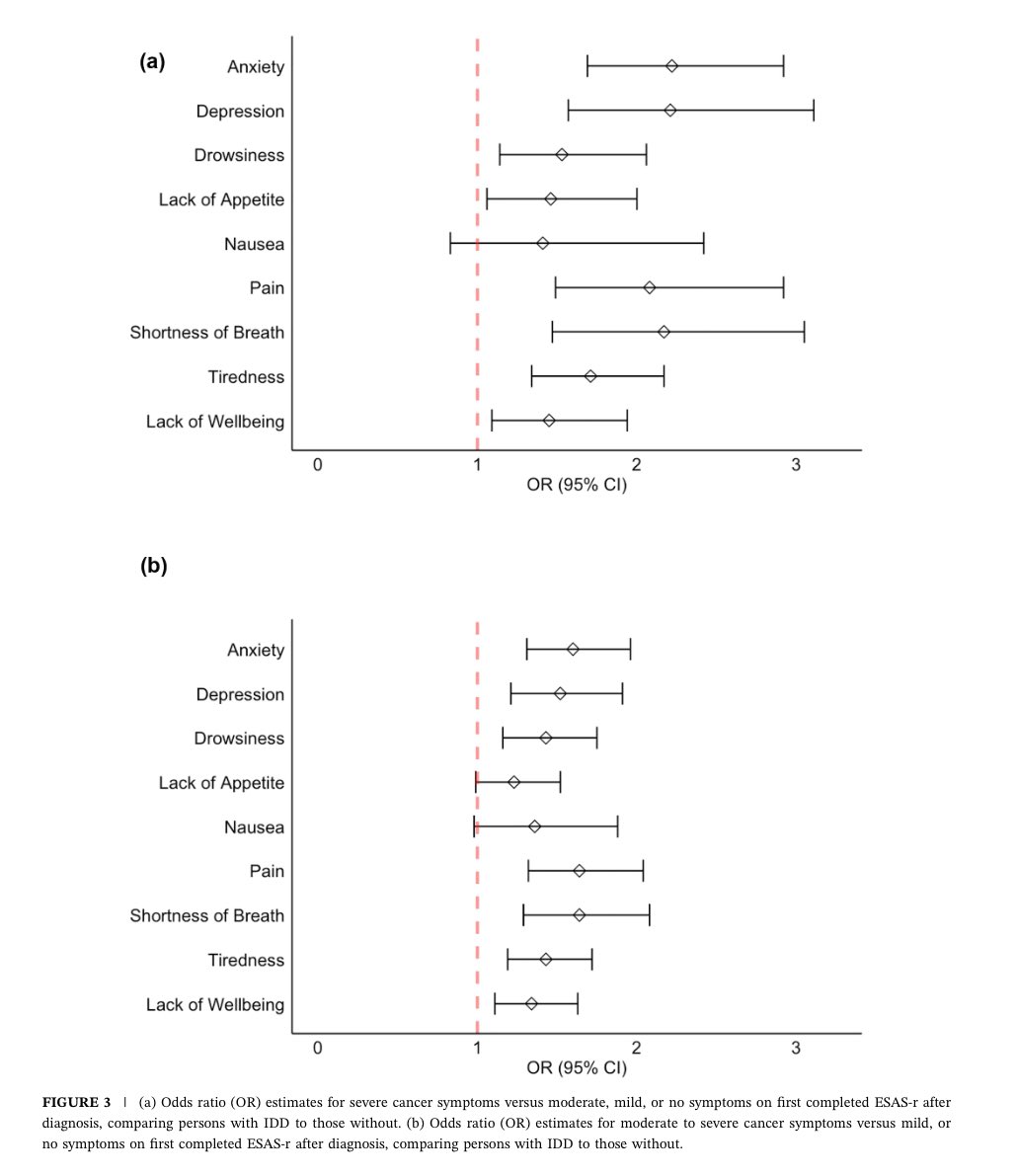

“My choice, shaped by us.” HSCT decisions in Vietnam reflect trust, culture & relationships Relational autonomy reveals how patients navigate choices with family, clinicians & social ties Psycho-Oncology onlinelibrary.wiley.com/doi/10.1002/po…
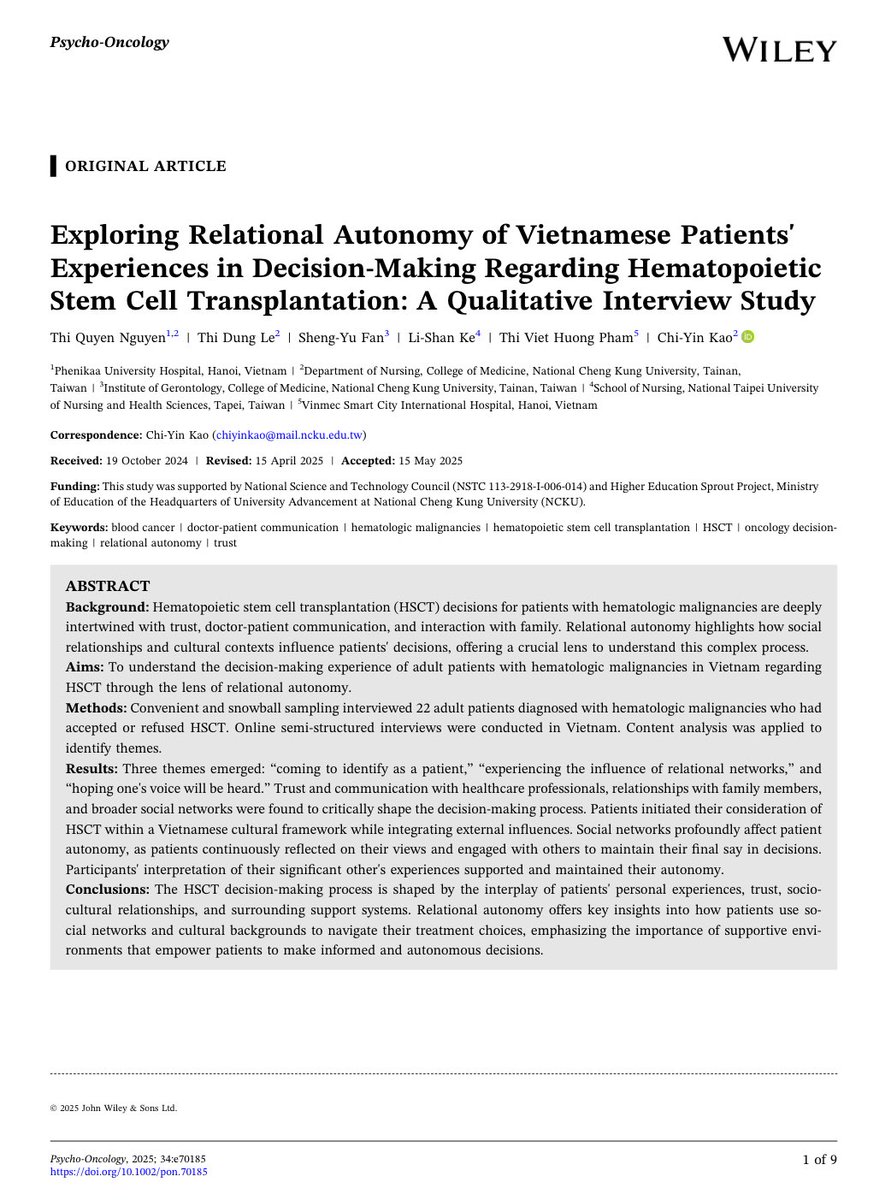

Mobile app use by gynecological cancer patients ↓ symptom severity, anxiety, & cancer-related worry — while boosting physical, social & psychological adaptation Tech + care = stronger support during chemo Psycho-Oncology onlinelibrary.wiley.com/doi/10.1002/po…
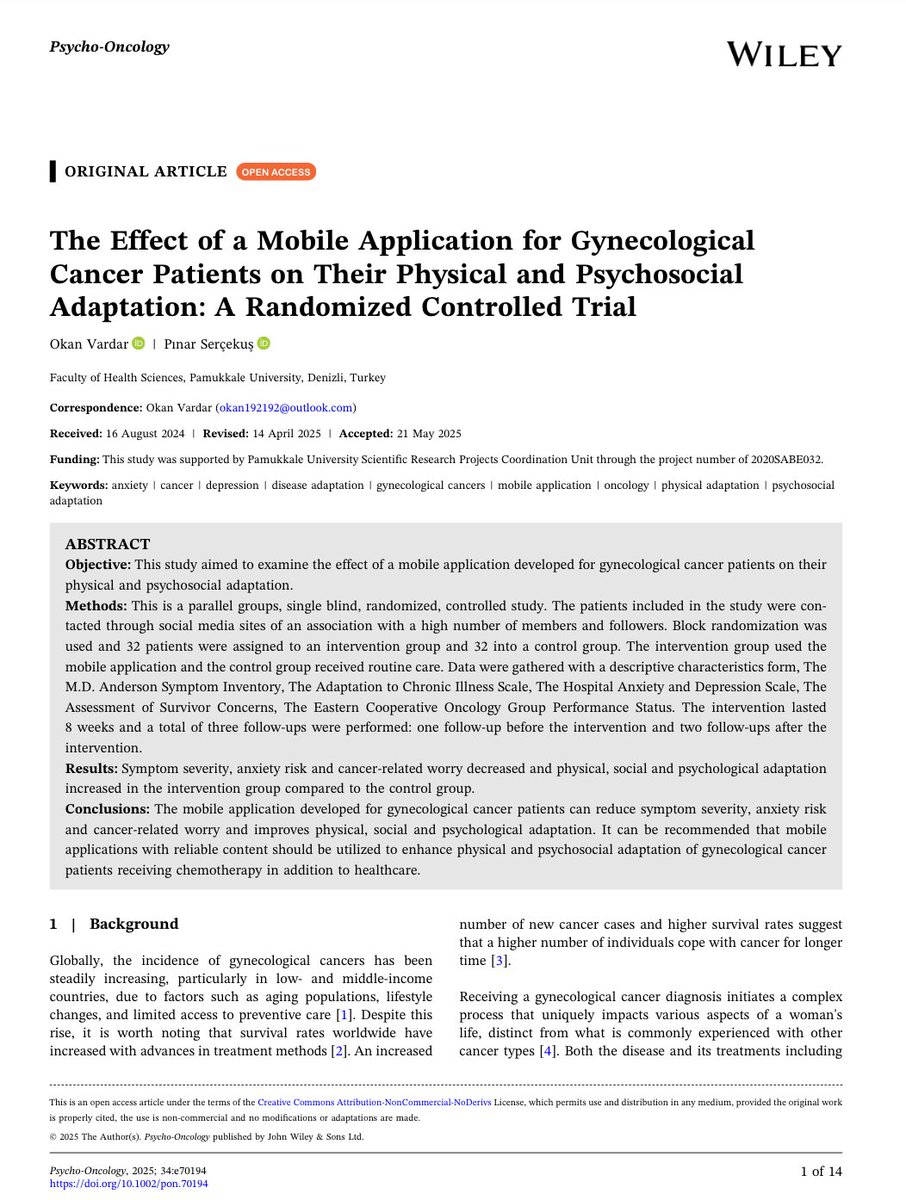

How patients perceive death risk shapes hospice decisions—directly & through emotions & confidence in decisions Psycho-Oncology Social support & hospice knowledge can ease the process Better communication + psychosocial support = improved advance care planning onlinelibrary.wiley.com/doi/10.1002/po…
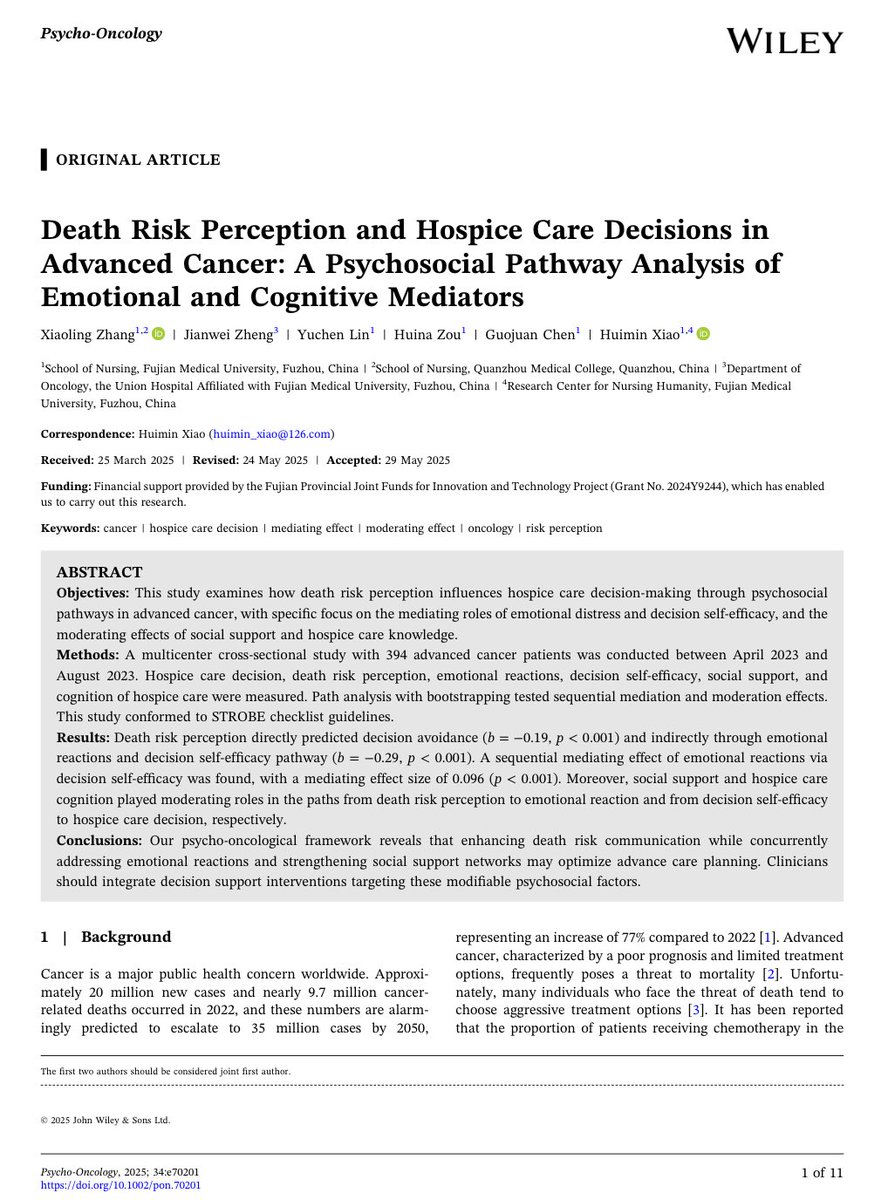

In early breast cancer, the vulnerability to harm/illness schema mediates how attachment anxiety impacts distress Tailoring interventions to target illness-specific schemas may improve coping & emotional outcomes Psycho-Oncology onlinelibrary.wiley.com/doi/10.1002/po…
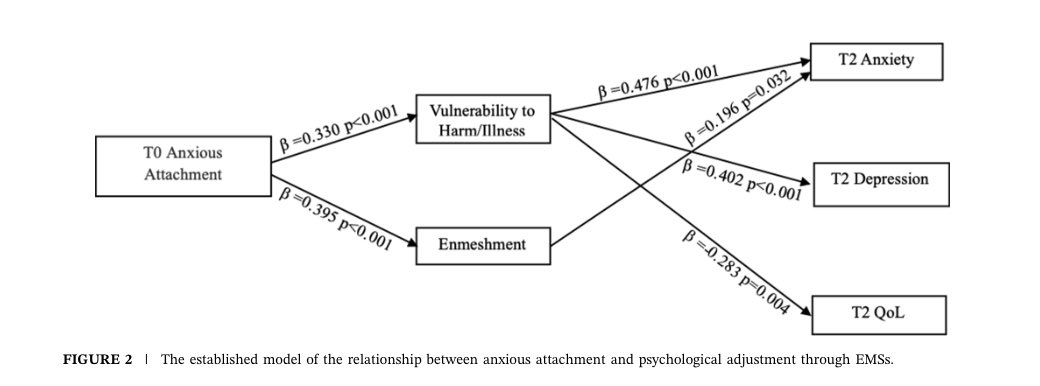

Spouses who screen together, stay healthier together? Psycho-Oncology Japanese study of 2,022 couples found strong concordance in cancer screening—if one spouse attends, the other is ~2.7× more likely to go too. Couple-based interventions could boost prevention onlinelibrary.wiley.com/doi/10.1002/po…
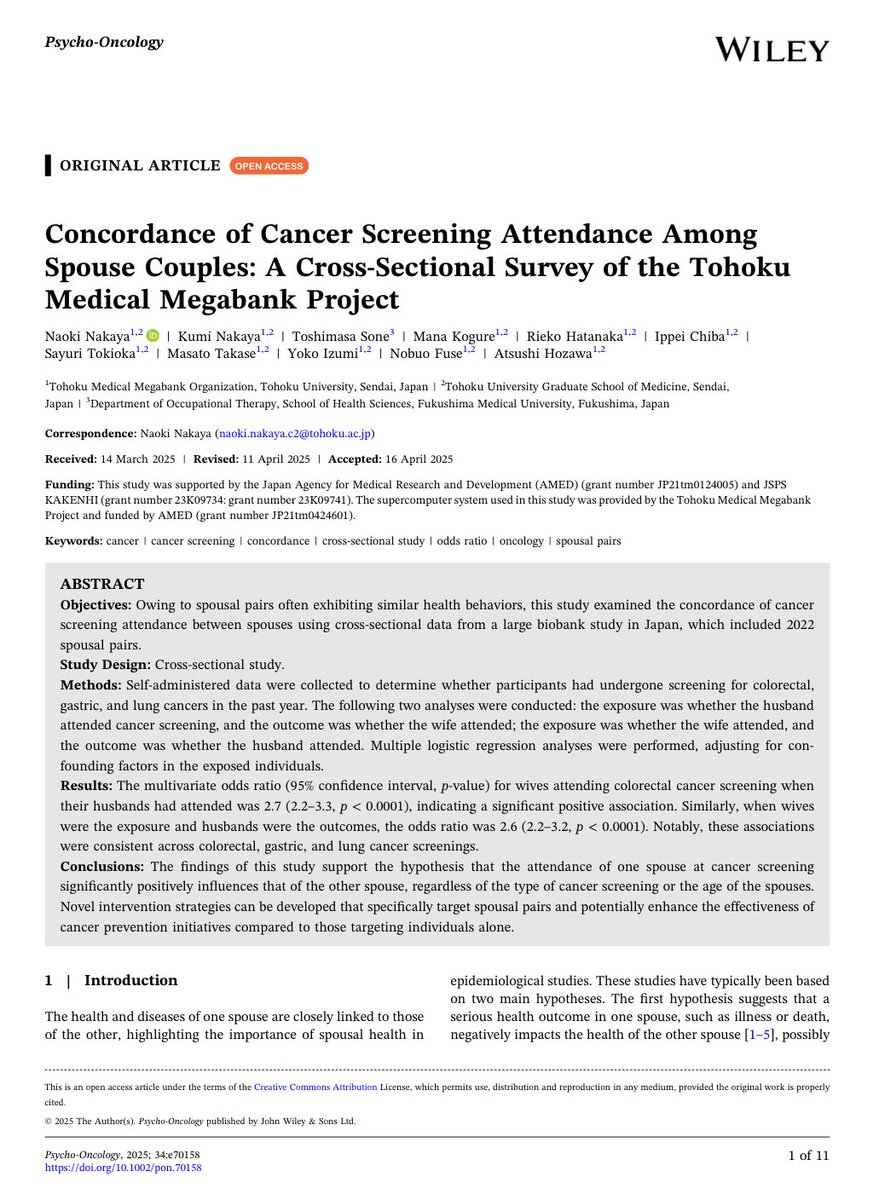

Nearly half of total laryngectomy patients face mental health challenges—yet 39% of head & neck surgeons feel uncomfortable addressing them Most want better support, but lack training/resources Bridging this gap is critical Psycho-Oncology onlinelibrary.wiley.com/doi/10.1002/po…
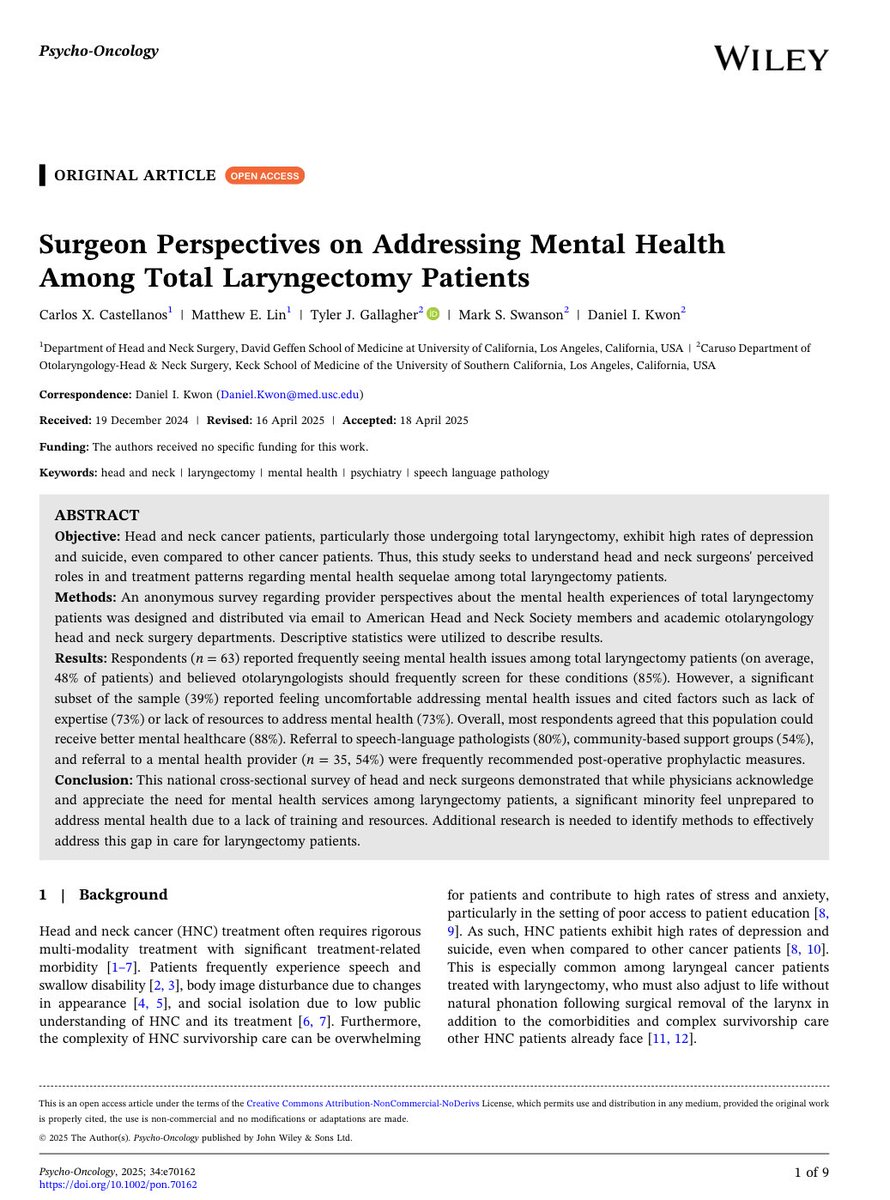

What matters most to adolescents living with advanced cancer? By analyzing their own social media posts, this study identified 6 domains of quality of life—like “normalcy” and “purpose.” Centering their voices is key to better care Psycho-Oncology onlinelibrary.wiley.com/doi/10.1002/po…
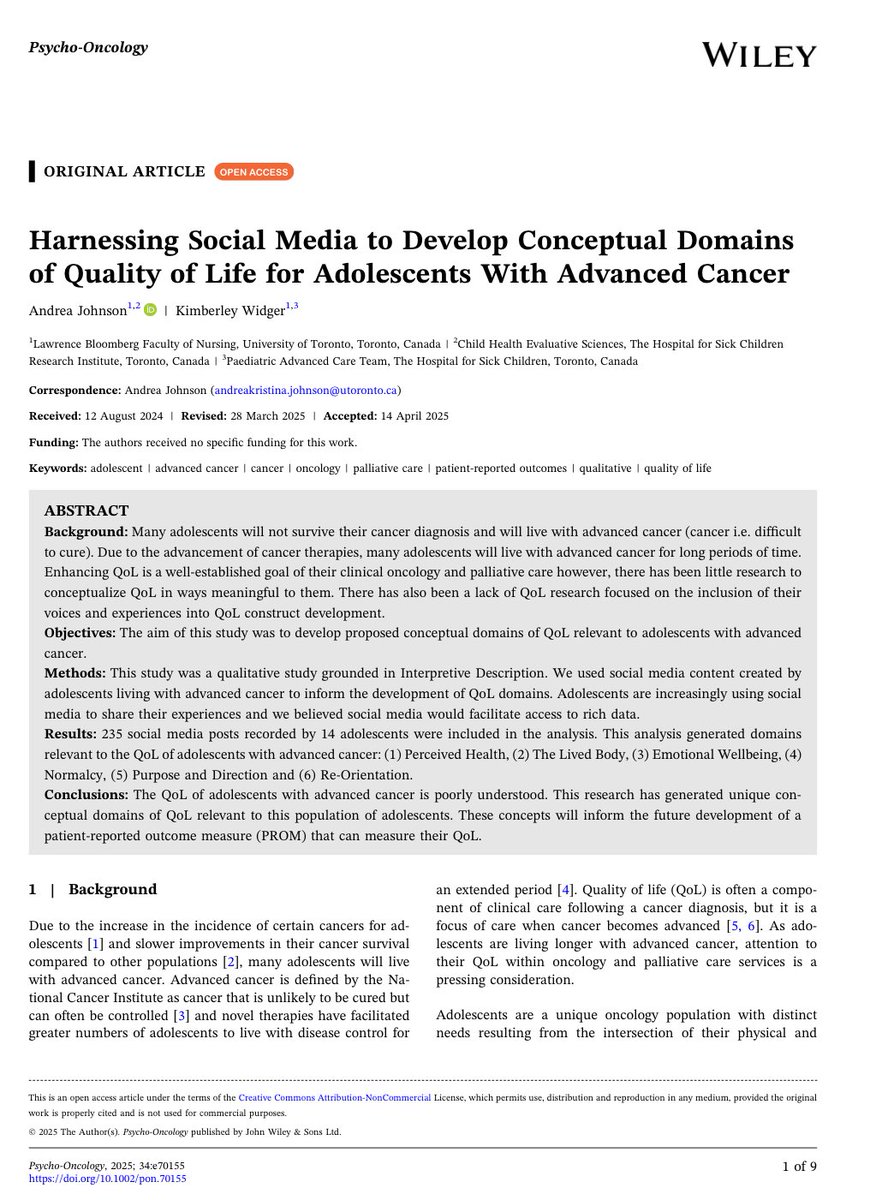

How do cancer care professionals grieve? This scoping review highlights that grief is common—but underrecognized—in oncology teams Clearer definitions and better support systems are urgently needed Psycho-Oncology onlinelibrary.wiley.com/doi/10.1002/po…
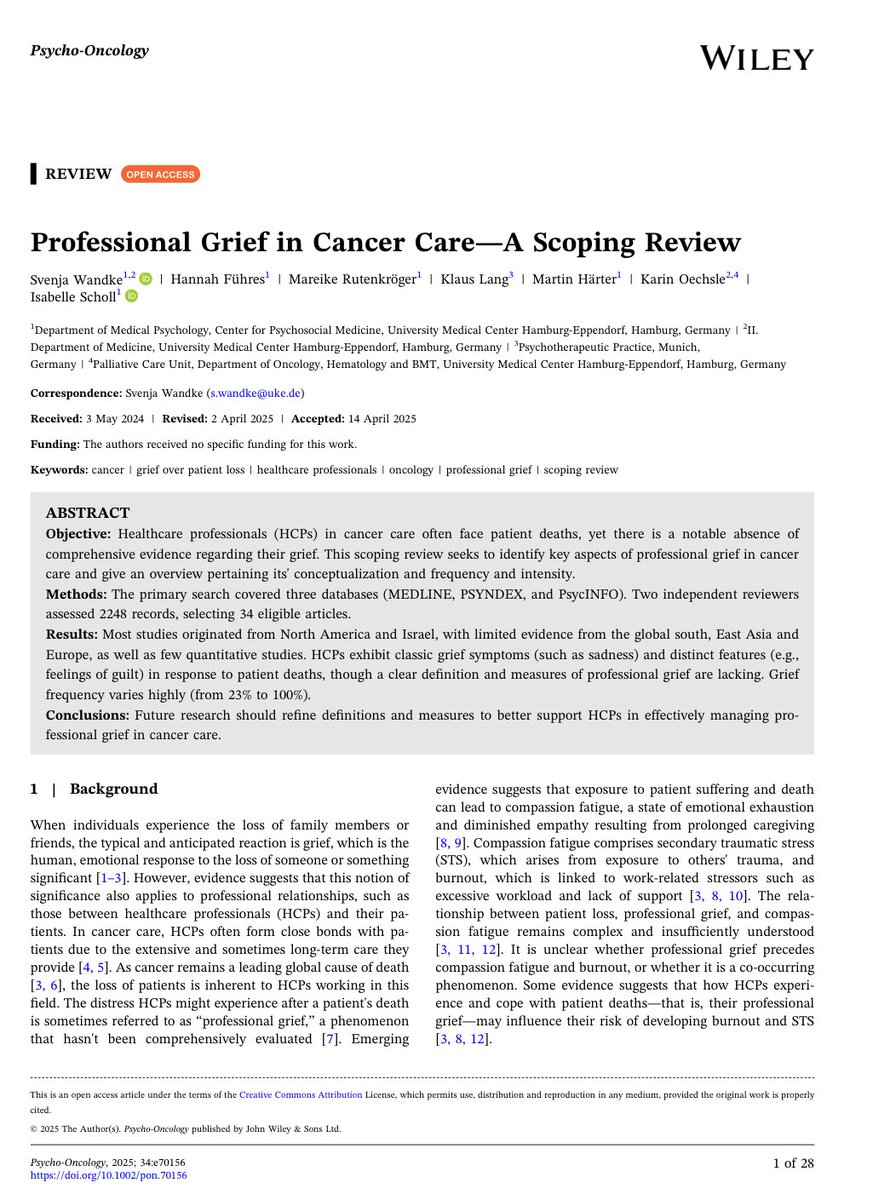

Cognitive impairment may shape how breast cancer survivors with diabetes view their illness Psycho-Oncology Impairments in attention, memory & executive function were linked to more inaccurate beliefs about diabetes—affecting self-management onlinelibrary.wiley.com/doi/10.1002/po…
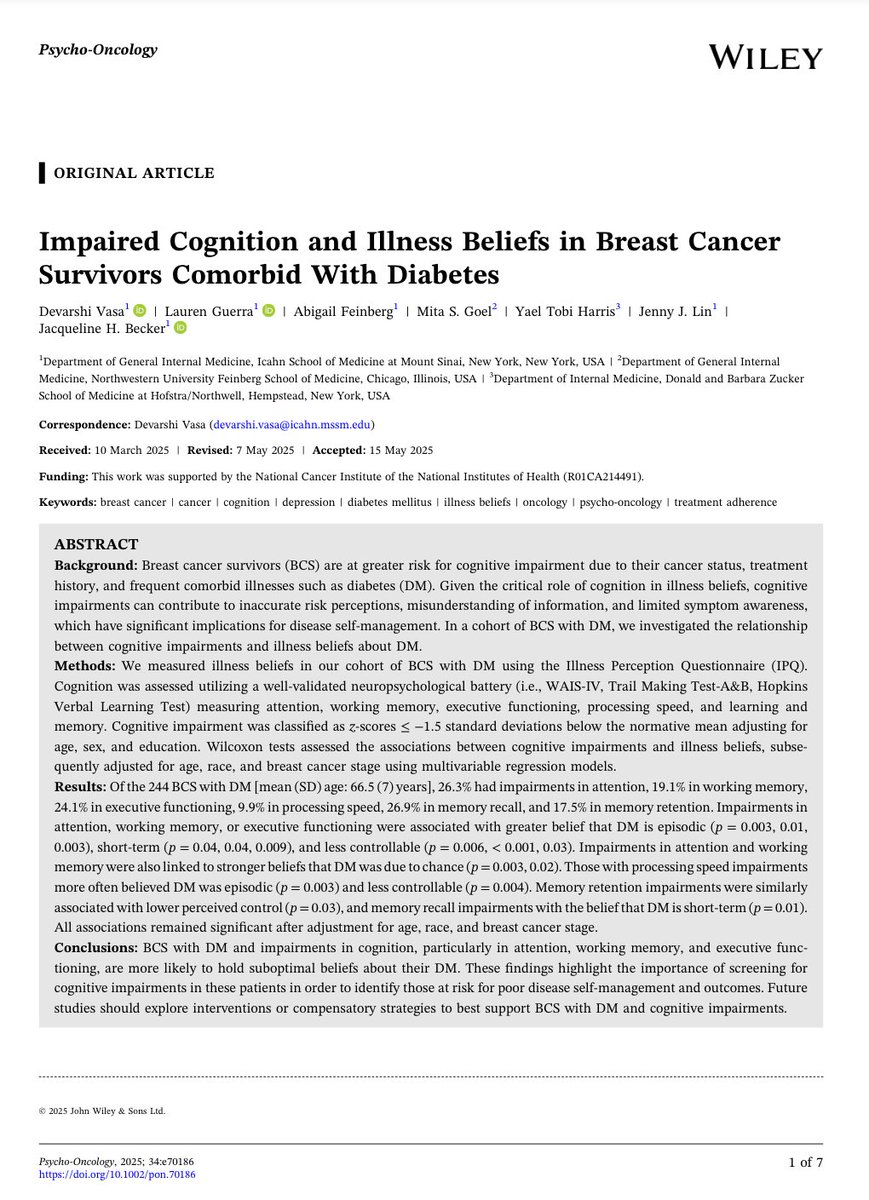

Childhood cancer affects the whole family—physically, emotionally, and psychologically. Child Life Therapy offers evidence-based support to help children and carers navigate treatment, build resilience, & foster long-term adjustment Psycho-Oncology Christina Signorelli, PhD onlinelibrary.wiley.com/doi/10.1002/po…
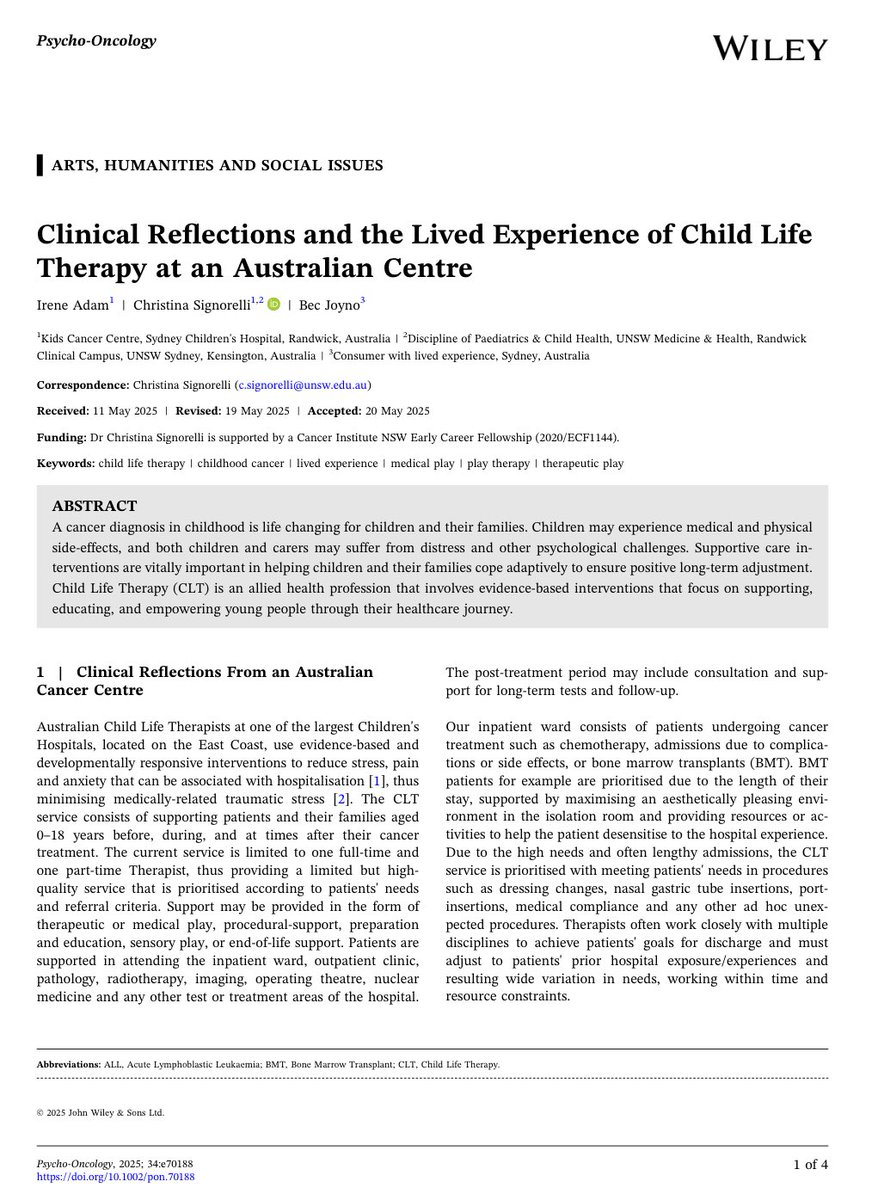

Specialist prostate cancer nursing works and pays off Psycho-Oncology A Social Return on Investment analysis in 🇦🇺 showed that every $1 invested in PCSN programs returns up to $2.34 in value Strong case 4 scaling nurse-led & telenursing support onlinelibrary.wiley.com/doi/10.1002/po…
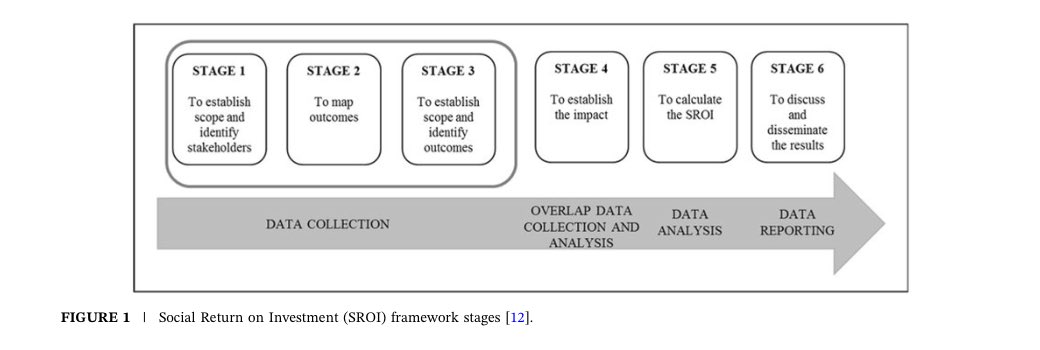

Can virtual support empower male caregivers in cancer care? 🇳🇬 study found that an 8-week Zoom-based program for male partners improved spousal support & QoL in women w breast/GYN cancer Culturally tailored, couple-based care works Psycho-Oncology onlinelibrary.wiley.com/doi/10.1002/po…
